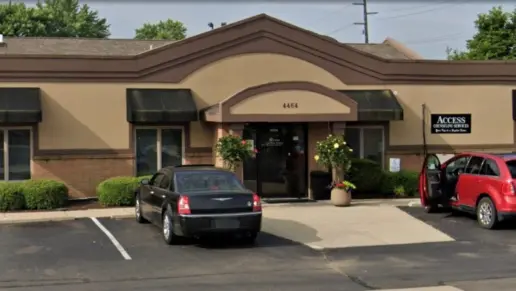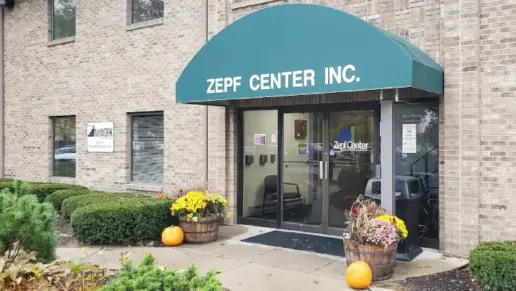About Southeast Healthcare Services – Adult and Family
Addiction treatment is provided by Southeast Healthcare Services — Adult and Family in Columbus Ohio. An Intensive Outpatient Program (IOP) is used to organize their outpatient treatment for substance use and medication assisted treatment (MAT) for opioid dependence. Southeast uses the American Society of Addiction Medicines criteria to decide what degree of care is necessary to meet each person’s needs. A comprehensive approach to treating substance use disorders is provided by their MAT program which combines behavioral therapies and counseling with approved medications. Medications that they may use include Buprenorphine, an opioid agonist or antagonist that reduces the risk of withdrawal and blocks other narcotics. They may also use Naltrexone which is a non addictive opioid antagonist that blocks the effects of various drugs including alcohol.
Treatment in the IOP includes group counseling meetings and behavioral therapy to help you establish long term recovery. When needed the Southeast Healthcare chaplain meets with clients to offer spiritual counseling and guidance. Because MAT requires the administration of medication the chaplain also facilitates NA meetings for those who wish to receive support.
At this facility you can call to make an appointment for assessment and they also provide walk in assessments between certain hours. They can also refer you to an outpatient Suboxone clinic if you’re interested in a focus on harm reduction. Patients can start treatment after release from inpatient or residential care or you can self refer or be referred by an emergency room.
Peers and case managers help program participants stay on top of their recovery plans and make sure they have access to resources. Because they have overcome substance use disorders in their own lives the peers who support program participants greatly add to treatment by sharing insights and relating to them through a common experience. When treatment ends Southeast also offers aftercare programs to support your recovery.
For those enrolled in the MAT program as well as anyone seeking primary care services the doctors and nurse practitioners here offer physical examinations and screenings as well as lab tests and general healthcare services.
Latest Reviews
Rehab Score
Other Forms of Payment
Medicaid is a state based program that helps lower-income individuals and families pay for healthcare. Medicaid covers addiction treatment so those enrolled can use their coverage to pay for rehab. When a program accepts Medicaid the client often pays very little or nothing out of their own pocket.
Private insurance refers to any kind of healthcare coverage that isn't from the state or federal government. This includes individual and family plans offered by an employer or purchased from the Insurance Marketplace. Every plan will have different requirements and out of pocket costs so be sure to get the full details before you start treatment.
Self-pay involves paying for treatment out of your own pocket. You can use savings or credit, get a personal loan, or receive help from family and friends to fund your treatment. If you don't have insurance or your insurance plan doesn't cover a specific program, self-pay can help ensure you still get the care you need.
Financial aid can take many forms. Centers may have grants or scholarships available to clients who meet eligibility requirements. Programs that receive SAMHSA grants may have financial aid available for those who need treatment as well. Grants and scholarships can help you pai for treatment without having to repay.
Sliding scale payments are based on a client's income and family size. The goal is to make treatment affordable to everyone. By taking these factors into account, addiction recovery care providers help ensure that your treatment does not become a financial burden to you or your family, eliminating one barrier to care.
Medicare is a federal program that provides health insurance for those 65 and older. It also serves people under 65 with chronic and disabling health challenges. To use Medicare for addiction treatment you need to find a program that accepts Medicare and is in network with your plan. Out of pocket costs and preauthorization requirements vary, so always check with your provider.
Military members, veterans, and eligible dependents have access to specific insurance programs that help them get the care they need. TRICARE and VA insurance can help you access low cost or no cost addiction and mental health treatment. Programs that accept military insurance often have targeted treatment focused on the unique challenges military members, veterans, and their families face.
Addiction Treatments
Levels of Care
Treatments
The goal of treatment for alcoholism is abstinence. Those with poor social support, poor motivation, or psychiatric disorders tend to relapse within a few years of treatment. For these people, success is measured by longer periods of abstinence, reduced use of alcohol, better health, and improved social functioning. Recovery and Maintenance are usually based on 12 step programs and AA meetings.
Drug rehab in Ohio provides comprehensive treatment to address the physical and psychological needs of those struggling with substance use disorders. This may involve inpatient and/or outpatient care.
Many of those suffering from addiction also suffer from mental or emotional illnesses like schizophrenia, bipolar disorder, depression, or anxiety disorders. Rehab and other substance abuse facilities treating those with a dual diagnosis or co-occurring disorder administer psychiatric treatment to address the person's mental health issue in addition to drug and alcohol rehabilitation.
Opioid rehabs specialize in supporting those recovering from opioid addiction. They treat those suffering from addiction to illegal opioids like heroin, as well as prescription drugs like oxycodone. These centers typically combine both physical as well as mental and emotional support to help stop addiction. Physical support often includes medical detox and subsequent medical support (including medication), and mental support includes in-depth therapy to address the underlying causes of addiction.
Substance rehabs focus on helping individuals recover from substance abuse, including alcohol and drug addiction (both illegal and prescription drugs). They often include the opportunity to engage in both individual as well as group therapy.
Programs


Clinical Services
Group therapy is any therapeutic work that happens in a group (not one-on-one). There are a number of different group therapy modalities, including support groups, experiential therapy, psycho-education, and more. Group therapy involves treatment as well as processing interaction between group members.
Trauma therapy addresses traumatic incidents from a client's past that are likely affecting their present-day experience. Trauma is often one of the primary triggers and potential causes of addiction, and can stem from child sexual abuse, domestic violence, having a parent with a mental illness, losing one or both parents at a young age, teenage or adult sexual assault, or any number of other factors. The purpose of trauma therapy is to allow a patient to process trauma and move through and past it, with the help of trained and compassionate mental health professionals.
Contact Information
1455 South 4th street
Columbus, OH 43207


